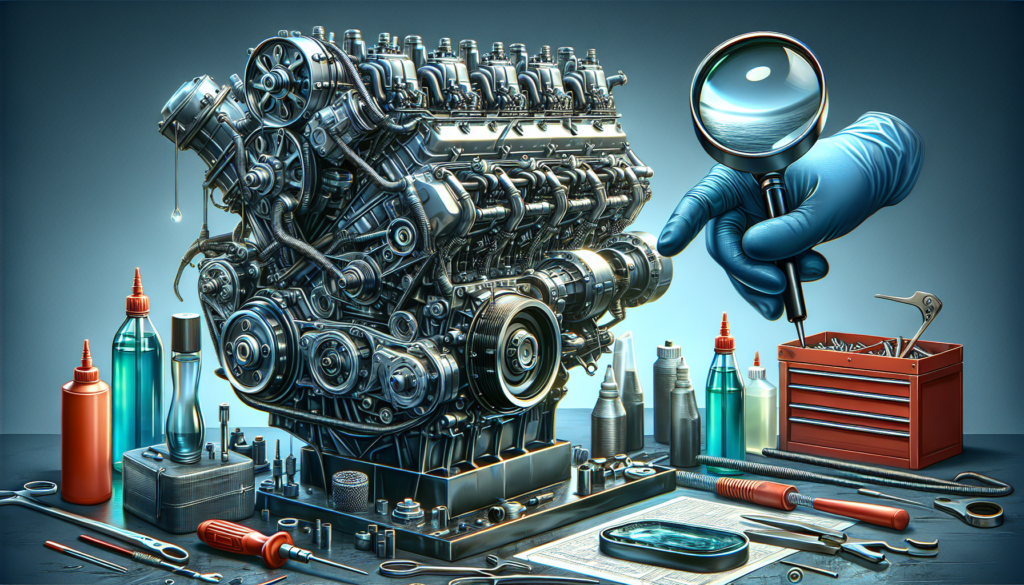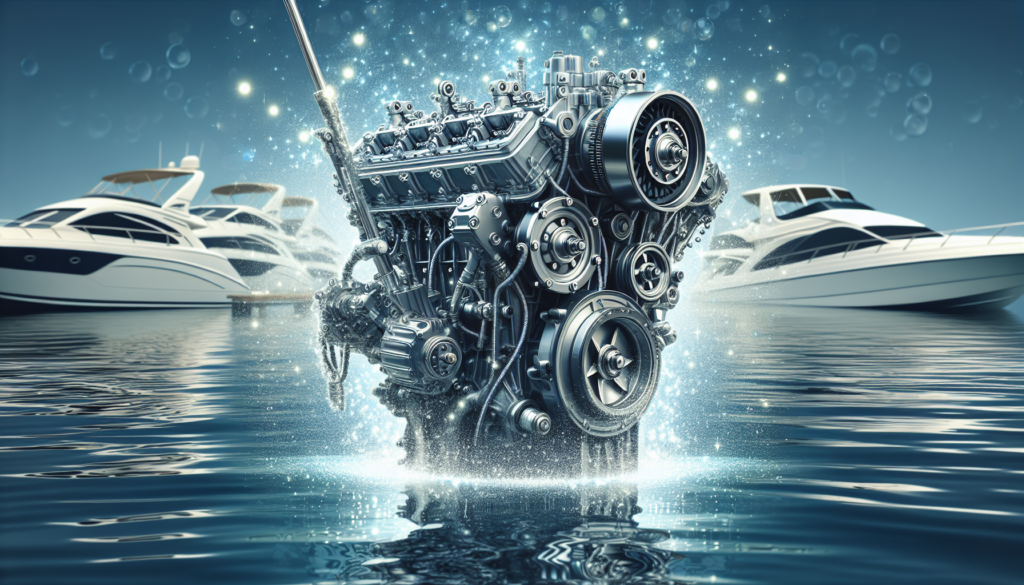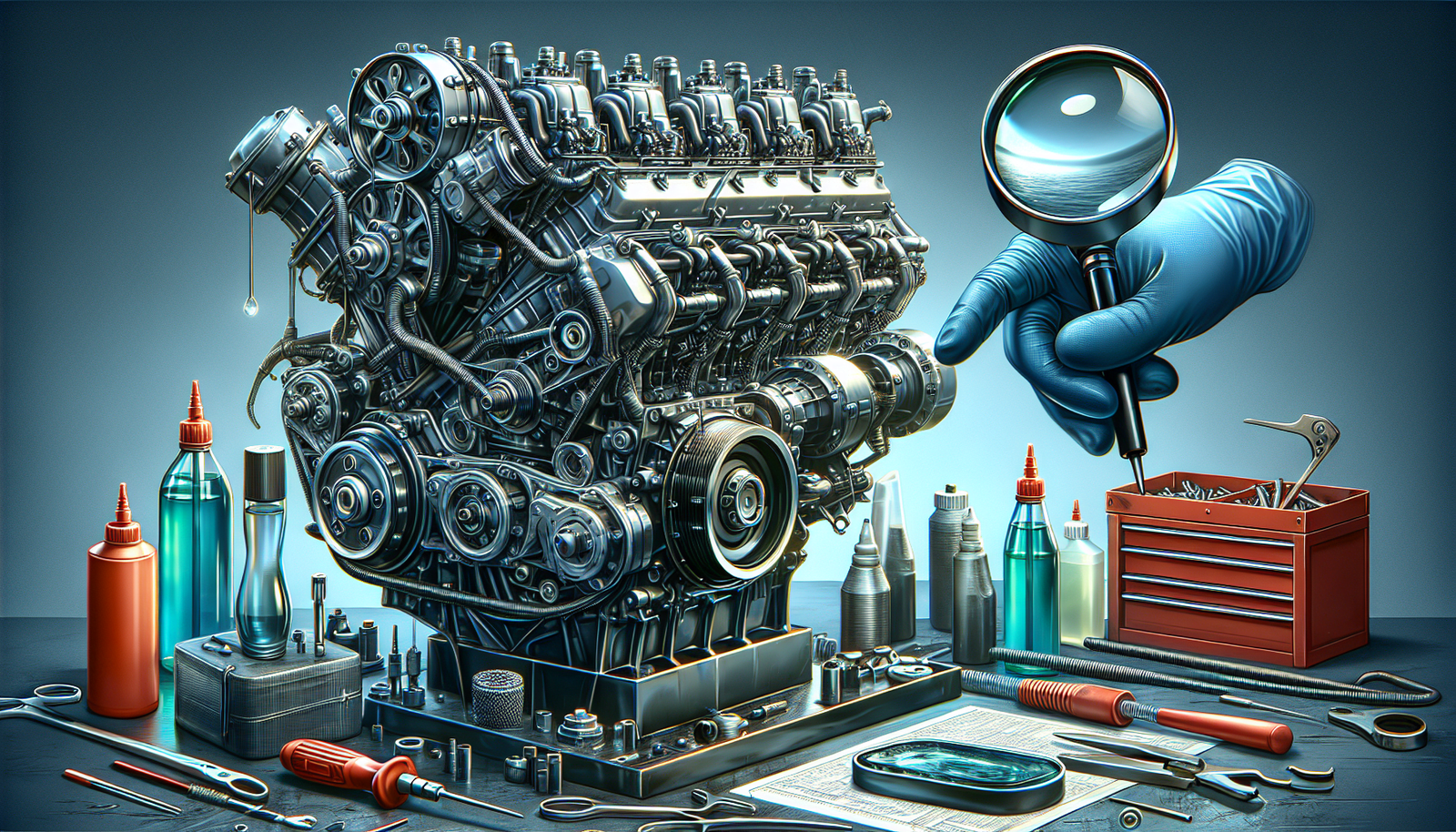If you’re serious about squeezing every last unit of performance out of your boat’s engine, you’re in the right place. “Essential Boat Engine Maintenance For Peak Horsepower” provides you with tried and tested tips to keep your engine running at its optimal level. Experience the thrill of gliding across the water at full speed with an engine that roars with health and power. This article lifts the lid not only on basic upkeep but points the way towards that extra edge. Read on, fellow maritime enthusiasts, to turn your boat into the oceanic powerhouse it was always meant to be.

Understanding Boat Engine Basics
You know, taking care of a boat isn’t all that different from caring for a car. The engine, in particular, holds quite a few similarities. As the heart of your boat, understanding its basic components and how they function can improve the boat’s performance and extend its lifespan. Let’s dive into some boat engine basics, shall we?
The Importance of Boat Engine Maintenance
Just like how you wouldn’t neglect your car’s engine, the same care and attention should be given to your boat’s engine. Regular maintenance is paramount to keep it running smoothly and efficiently. And trust me, the last thing you want is for your boat engine to give out on you in the middle of the water.
Different Types of Boat Engines
Boat engines come in all shapes and sizes. You’ve got your outboards, inboards, stern drives, jet drives and, of course, the hybrids. Each comes with its own unique set of maintenance requirements. So, knowing what type of engine your boat has is the first step in understanding how to take care of it.
Understanding Horsepower and Your Boat Engine
Horsepower is to boat engines what speed is to cars. It refers to the amount of power your boat engine produces. Now, more horsepower doesn’t always mean better. It’s all about finding the right balance between speed, performance, and efficiency. Understanding your boat’s horsepower can help you maintain its engine properly.
Preventive Maintenance for Optimal Performance
One golden rule to remember: prevention is always better than cure. In this context, regular preventive maintenance can ensure optimal performance and minimize costly repairs down the line.
The Role of Regular Inspections
Regular inspections are your first line of defense. These allow you to catch minor issues before they escalate into major problems. So, make it a habit to keep an eye on the engine’s performance, watch for leaks and listen to unusual sounds.
Importance of Seasonal Maintenance
Ah, the changing seasons! As the atmosphere shifts, so do your boat’s maintenance needs. For instance, preparing your boat engine for winter involves different steps than getting it ready for summer. Seasonal maintenance is crucial in prolonging the life of your boat engine.
Routine Cleaning Practices
Whether on land or at sea, dirt and debris are your engine’s worst enemies. Routine cleaning keeps these at bay while also allowing you to spot and address any issues in their early stages.
Checking Boat Engine Fluids
Think of an engine as your body. Just like you’d get dehydrated without enough fluids, so would your boat’s engine. Keeping an eye on your engine’s fluids can ensure it runs smoothly and stays healthy for a long time.
Regular Oil Changes
Just like your car, your boat engine needs regular oil changes. Old and dirty oil can lead to a reduction in engine efficiency and, ultimately, engine failure. Therefore, you should change the engine oil as per the manufacturer’s recommendations.
Monitor the Coolant Levels
Coolant prevents your engine from overheating and freezing, depending on the temperature. Regularly checking and topping up the coolant levels is crucial for optimal engine performance.
Properly Managing Fuel Systems
Fuel is the lifeblood of your boat’s engine. Managing the fuel system involves keeping the fuel clean and free from contaminants. It’s also important to ensure that fuel lines aren’t leaking or compromised in any way.

Maintaining Electrical Systems
An efficient boat engine relies on a well-maintained electrical system. Here are some best maintenance practices you should adopt.
Regular Battery Checks
Your boat’s battery powers the electrical system. Regular battery checks ensure it’s always in good condition, ready to meet the boat’s energy needs.
Inspecting Spark Plugs
Spark plugs ignite the fuel-air mixture in the engine, generating power. Regular inspections can help detect wear and tear and decide when replacements are necessary.
Checking for Corrosion and Wire Damage
Electrical wires and connections in your boat are vulnerable to water damage and corrosion. Keeping an eye out for these issues and addressing them promptly can prevent serious engine troubles.
Managing Propulsion Systems
The propulsion system transfers your boat engine’s power into movement. Without it, your boat isn’t going anywhere.
Monitor Propshaft and Strut Bearings
These components bear the load of your boat and play a crucial role in its movement. Regular monitoring can help prevent damage that can lead to costly repairs.
Regular Engine Alignment Checks
Proper alignment of your engine is essential for efficient propulsion. Misalignment can cause vibrations, poor performance, and increased wear and tear. As such, regular engine alignment checks are important.
Proper Handling of Stern Drive Units
Stern drive units can be tricky to maintain. It requires proper handling to avoid damage. Remember, when it comes to your boat’s propulsion, every little piece makes a big difference.
Boat Engine Air Systems Maintenance
What does an engine need to burn fuel and produce power? Oxygen. That’s where your boat’s air systems come in.
Regularly Checking Air Filters
Air filters remove dust and other contaminants from the air before it enters the engine. An obstructed air filter can cause your engine to work harder, which eventually leads to higher fuel consumption and reduced performance.
Maintaining Proper Ventilation
Ventilation ensures that there is sufficient air for the engine to burn fuel. Also, proper engine compartment ventilation can prevent the buildup of dangerous gases that could lead to an onboard fire.
Understanding the Role of Superchargers and Turbochargers
Superchargers and turbochargers increase engine performance by providing more air to the engine. Understanding their role can help you maintain your boat’s air systems more effectively.
Keeping the Fuel System Clean
A clean fuel system equates to a happy engine.
Proper Fuel Storage
Proper storage of fuel not only ensures that your fuel remains clean but also prevents the risk of fuel spillage. Always remember to use approved fuel containers and to secure them properly on your boat.
Importance of Using Fuel Stabilizers
Fuel stabilizers can keep your fuel from degrading, especially during extended periods of storage. This is particularly useful for maintaining your boat engine’s performance.
Regular Fuel Filter Changes
Just like air filters, fuel filters also need regular changing. Old or dirty fuel filters can affect engine performance and fuel efficiency.
Dealing with Corrosion and Rust
Oh, the dreaded enemies of metal: corrosion and rust! If left unattended, they can do significant damage to your engine.
Understanding the Causes of Corrosion
Corrosion typically results from exposure to saltwater and humidity. Understanding its causes allows you to take preventive measures to keep it at bay.
Proactive Measures Against Rust and Corrosion
Regular cleaning and covering your boat when not in use are simple and practical measures against rust and corrosion. They also keep your boat looking good for longer.
Regular Coating and Painting
Periodic coating and painting can provide a protective barrier against rust and corrosion. Plus, it keeps your boat looking fresh and well-maintained.
Proper Lubrication For Smooth Operation
When metal parts move against each other, friction occurs. And trust me, too much friction is never a good thing. That’s why lubrication is key.
Understanding the Importance of Lubrication
Proper lubrication reduces friction among moving parts, prevents overheating, and minimizes wear and tear. This ensures your engine will continue to run smoothly.
Proper Lubrication Points on Your Engine
Knowing the correct points to lubricate on your engine can improve its performance and overall lifespan. Some critical areas include gears, bearings, shafts, and pivot points.
Choosing the Right Lubricant
Choosing the right lubricant is just as crucial as the act of lubrication itself. Using unsuitable or low-quality oil can do more harm than good. Therefore, always ensure that you use only manufacturer-recommended lubricants.
Maintenance Tools and Equipment Needed
To perform any of the maintenance tasks we’ve discussed, you’d need the right tools and equipment.
Must-Have Tools for Boat Engine Maintenance
Some must-have tools include a wrench set, screwdrivers, pliers, a multimeter for electrical diagnostics, and a grease gun for lubrication tasks, among others.
Safety Gears Required During Maintenance
Safety should always be your top priority. Goggles, gloves, and sturdy, non-slip shoes are some of the essential safety gears you should wear during maintenance tasks.
Where to Source Quality Tools and Equipment
Quality tools can be the difference between successful maintenance and a botched job. Source your tools from reliable suppliers, and remember, investing in your boat’s maintenance is investing in its future.
So, there you have it – the essentials of boat engine maintenance. With regular inspections, proper fluid management, good cleaning, and the right tools, you can ensure peak engine performance and enjoy smooth sailing all season long!

